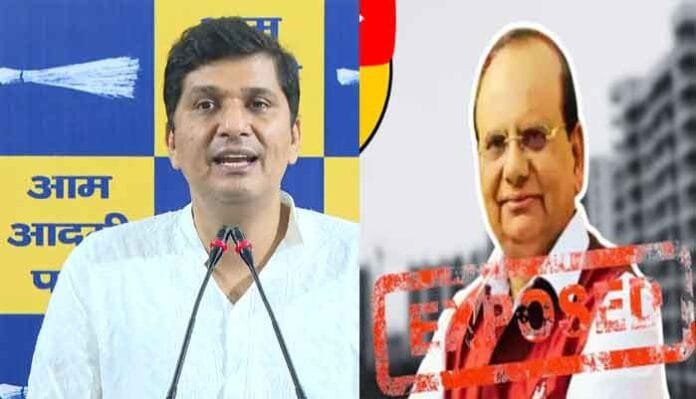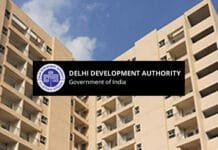INVC NEWS
New Delhi : In a startling revelation that has sent shockwaves through Delhi’s political landscape, Saurabh Bharadwaj, a prominent minister of the Aam Aadmi Party (AAP), has leveled serious accusations against the Bharatiya Janata Party (BJP) and Lieutenant Governor (LG) Vinai Saxena. Bharadwaj claims that the BJP is orchestrating a scam in the Delhi Development Authority (DDA) flat allotment process, jeopardizing the housing rights of the underprivileged. These allegations raise pressing questions about transparency, accountability, and the commitment of authorities to uphold the welfare of the marginalized.
The Allegations of Corruption
During a press conference, Bharadwaj articulated his concerns regarding the alleged corruption within the DDA, specifically targeting the allotment of flats intended for the economically disadvantaged. He accused the BJP of facilitating the sale of these flats to ineligible individuals, undermining the original purpose of the housing scheme designed to assist slum dwellers.
BJP’s Role and LG Vinai Saxena’s Involvement
He asserted that such a large-scale corruption scheme could not occur without the knowledge or approval of LG Vinai Saxena. The implication is clear: Bharadwaj believes that Saxena, who oversees the functioning of the DDA, is either complicit in this corruption or grossly negligent in his duties.
The minister remarked, “It is impossible for such a significant scam to unfold right under the nose of the LG without his awareness.” This statement underscores the gravity of the situation, indicating a potential failure at the highest levels of governance in Delhi.
The fallout from these allegations is profound. The flats constructed under the DDA’s initiative were specifically intended to provide housing solutions for the city’s vulnerable populations, many of whom have been displaced from their homes. By misallocating these resources, the DDA is not only betraying its mission but also further entrenching the cycle of poverty and homelessness for countless families.
Bharadwaj expressed his deep concern over the fate of these vulnerable communities, emphasizing that the government’s failure to deliver on its promises could lead to social unrest and a deepening trust deficit between the citizens and their leaders.
Calls for an Independent Investigation
In light of the serious accusations, Bharadwaj has demanded an independent investigation into the DDA’s activities. He believes that only a judge from the High Court or Supreme Court can ensure a thorough and unbiased inquiry into the alleged corruption. This call for judicial oversight reflects a broader demand for transparency and accountability in public service.
Bharadwaj’s skepticism regarding investigative bodies such as the Anti-Corruption Bureau (ACB) or the Central Bureau of Investigation (CBI) stems from concerns about their potential bias, given their operational dependence on the LG and the central government. By advocating for an independent probe, Bharadwaj is pushing for a process that prioritizes the public interest over political maneuvering.
Political Ramifications
These allegations could have significant political ramifications for both the AAP and BJP. If the claims of corruption are substantiated, the BJP could face severe backlash from the electorate, particularly from the marginalized communities it has promised to support.
The Public’s Response
As the allegations unfold, public sentiment is likely to play a crucial role. Citizens, particularly those directly affected by the housing crisis, are watching closely to see how their leaders respond. The demand for accountability is growing, and the outcomes of these allegations could either galvanize support for the AAP or further entrench the BJP’s position in Delhi.
The allegations of corruption surrounding the DDA flat allotment process, as outlined by Saurabh Bharadwaj, spotlight critical issues of governance, accountability, and the protection of vulnerable communities. With the call for an independent investigation, the stage is set for a deeper examination of these claims. As Delhi navigates this political crisis, the implications for its housing policies and the welfare of its citizens remain paramount.












